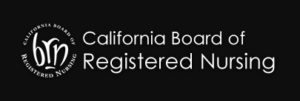Protecting Your Registered Nursing License
Ray & Bishop, PLC, are California’s Best Nursing License Defense Attorneys
Leading California Nursing License Defense Attorneys
At Ray & Bishop, PLC, we know how important registered nurses are to healthcare in California. We represent hundreds of nurses each year against the Board of Registered Nursing and the Department of Consumer Affairs, and in every case, our clients rely on us to protect their license and protect their livelihood.
We call ourselves California’s best nursing license defense attorneys for a reason: our experience and our results. If you have an Accusation or a disciplinary action with the Board of Registered Nursing or a Deputy Attorney General, we can help. Our attorneys regularly appear before the Office of Administrative Hearings in Los Angeles, Sacramento, Oakland, and San Diego, to defend nurses against charges brought by BRN. No matter what stage of the disciplinary process you are in, we can help.
On this page, you’ll find helpful information that we’ve gathered from years of experience working to protect nurses—we hope some of it can help you achieve some peace of mind about your disciplinary case. However, the only case that matters is yours, and the information on this page is not a guarantee, warranty, or a prediction about your case outcome. If you have a disciplinary matter, call us right away.
Board of Nursing (BRN) Investigation Process – Common Questions
 My Nursing License is under investigation. What do I do?
My Nursing License is under investigation. What do I do?
The first step in most disciplinary cases filed by the Board of Registered Nursing is an investigation, conducted either by a BRN investigator or by the Department of Consumer Affairs (DCA). These investigations can be triggered by a patient complaint, by a hospital administration report, or by an arrest and/or subsequent criminal conviction. If you receive word that you are being investigated, call an attorney right away. You should not attempt to deal with an investigator yourself.
How will I know if I’m being investigated?
The Board of Registered Nursing does not have to inform you if you are being investigated, and in fact sometimes the registered nurse who’s being investigated is the last to know. Sometimes, the nurse will be given advance warning of an investigation by their supervisor or hospital administration (they’ll be told something like “we have to report this to the Board.”) More often, the nurse finds out about the investigation when they’re contacted directly by an investigator. The investigator will ask the nurse for employment records and may even request a meeting. Registered nurses are required to cooperate with investigators, but they do not have to sign releases or agree to a meeting. Don’t take action without consulting an attorney first.
If I get an attorney, won’t they think I did something wrong?
No. We have never seen a registered nurse disciplined, cited, or criticized for retaining counsel. The Board’s disciplinary guidelines are available online, and there is no mention of hiring an attorney in the disciplinary factors. There is also no credit, under the law, for confessing, admitting, or otherwise discussing the case with Board investigators. Although you are required to cooperate, you should always do so with legal representation to protect yourself.
How long will the Board of Nursing investigation take?
There is no limit for how long the Board of Registered Nursing can attempt to investigate potential misconduct. In fact, BRN is allowed to investigate nurses who have done nothing wrong, just to make sure they are complying with the law. Based on dozens of investigations, we estimate that most investigations take between 6-14 months from the start of the investigation to the issuance of an Accusation or the close of the case.
How can I stop the Board of Registered Nursing from filing an Accusation?
Our goal in every case is to persuade the investigator to close the case without recommending further disciplinary action. In cases where the registered nurse has made a serious mistake, we work with the investigator to make sure the Board and their attorneys have a complete picture of the facts of the case and the nurses involved. Strong evidence of mitigation and rehabilitation is critical at every stage in the case, and we help our nurses by presenting this information to Board investigators early in the process to assist the Board in making a decision.
Are they going to tell my work?
Investigations are confidential by law. It is very rare for the investigator or the Board to contact uninterested parties to discuss the investigation, and the facts of the investigation are not available online. However, if a nurse is being investigated for a patient complaint that occurred at work, the hospital or facility will often be notified, and other coworkers or supervisors may be contacted by the investigator.
Board of Nursing Accusations, Disciplinary Actions and License Defense
I got an Accusation from the Board of Registered Nursing! What do I do?
Getting an Accusation in the mail from the Board of Registered Nursing can be a traumatic experience for a California registered nurse. The Accusation comes directly from the Office of the Attorney General, it contains important paperwork and deadlines that the registered nurse needs to meet, and the nurse also has to sort through a stack of paperwork related to the disciplinary matter immediately in order to fully protect their license. The best course of action is to seek an experienced licensing attorney right away.
You mentioned paperwork, what do I do with all of the papers I was sent?
The Accusation itself is a legal document called a pleading; it’s the document that officially declares what the registered nurse did wrong and what the Board of Registered Nursing wants the court to do about it: usually license revocation and an order for the nurse to pay the Board its costs of investigation. The Accusation is accompanied by a Statement to Respondent (the Respondent is the accused registered nurse), a Request for Discovery, and a Notice of Defense. The Notice of Defense is the most important. It needs to be returned to the Attorney General within 15 days, or the Board can revoke a nurse’s license by default, without a hearing. The easiest way to handle all the paperwork is to hire an attorney to take care of responding to the paperwork, so that should be done right away.
I can’t believe they’re trying to take away my license! I only made a single mistake!
The Board of Registered Nursing doesn’t have the power to discipline a registered nursing license without giving the nurse a chance to be heard in court. That’s why, if the Board wants discipline, they have to file an Accusation, and the Accusation always asks the court to revoke or suspend the nursing license. However, stipulated settlements are very common—in a stipulated settlement, the nurse usually agrees that some or all of the violations occurred, and the Board agrees to a disciplinary outcome that is more lenient than outright revocation of the license. Settlements are particularly common in cases where discipline is based on a criminal conviction, because typically the fact of the conviction is a public record and not in dispute.
Should I settle my case or go to court?
Only an attorney who carefully evaluates the circumstances of your disciplinary case can answer this question. All settlements involve the benefit of certainty, but typically also the drawback of license discipline and potentially damaging admissions. All court cases involve the drawback of risk of license revocation, but typically also the benefit of proving that certain charges were untrue or unproven.
The Board can punish me for a criminal conviction even though I already got in trouble? Isn’t that double jeopardy?
No. The highest priority of the Board of Registered Nursing is to protect the California public, and they view all disciplinary actions as measures taken to protect the public, not to punish the registered nurse for bad behavior. So the Board can insist on restrictions or conditions to a nursing license even after similar restrictions have been imposed by a criminal court. Rehabilitation is the most important factor in how an Administrative Law Judge or the Board itself will resolve disciplinary matters based on convictions.
An Administrative Law Judge? What is the Office of Administrative Hearings? Do I have to testify?
If a nurse and her/his attorney can’t resolve a case prior to hearing through a settlement, the case is heard by an Administrative Law Judge (ALJ) at OAH—the Office of Administrative Hearings. OAH has offices in San Diego, Los Angeles, Oakland, and Sacramento, and RN cases are held almost daily, statewide. At the hearing, the Board’s attorneys present documents and witnesses, hear testimony, and ask the judge to discipline nurses. The nurse and his/her attorney have the same opportunity to present evidence and argument, but the accused nurse must testify in their own defense or be called as a witness by the Attorney General. The Administrative Law Judge hears the case and prepares a written “Proposed Decision,” which is sent to the Board for review. Within about one to three months, the Board makes a final Decision and Order which states whether or not the nurse will be disciplined.
So the Board gets the final decision either way? How is that fair?
Most Proposed Decisions are adopted by BRN, regardless of whether the outcome is favorable to the Board of Registered Nursing or not. However, in some cases, BRN elects to “non-adopt” the Proposed Decision and proceed to a further stage of written argument. BRN holds the ultimate authority to regulate registered nurses in California because, as a licensing agency, they are considered the authority on their own regulations. However, BRN Decisions can be appealed for an abuse of discretion or other legal reasons to superior court by a Writ of Mandate. We have attorneys who are experienced in administrative appeals to Superior Court who can discuss this with you if you have an unfavorable administrative Decision.
Registered Nursing License Denials
I have a criminal conviction in my background, can I still get an RN license?
The answer is generally yes, but how long it will take to get a license and what restrictions the license might have will need to be worked out with the Board and their attorneys. We have helped hundreds of license applicants to disclose their convictions and discuss how to achieve a license in California.
I already have a license in another state, why was I denied in California?
California is not bound by the decisions of other state licensing agencies, and the Board of Registered Nursing in California makes an independent decision about every applicant. In most cases, if a licensee is disciplined in one state, California will insist on equivalent discipline even if the incident is many years old. All licensing application questions should be directed to a qualified, experienced attorney.

Contact Us

Address:
4100 Newport Place Dr., Suite 670
Newport Beach, CA 92660
Disclaimer
**Attorneys are only licensed to practice law in California. Attorneys’ offices are only located in California. However, pursuant to United States Code of Federal Regulations 8 C.F.R. § 1.2 and United States Code 5 U.S.C. § 500, Attorneys may practice Federal Administrative Law and represent an individual located outside of California within the parameters of Federal Administrative Law. Attorneys will NOT advise clients on the laws of any State or any State law legal matters (with the exception of California). The information on this website is for general information purposes only. Nothing on this site should be taken as legal advice for any individual case or situation. This information is not intended to create, and receipt or viewing does not constitute, an attorney-client relationship. Legal advertisement.**
